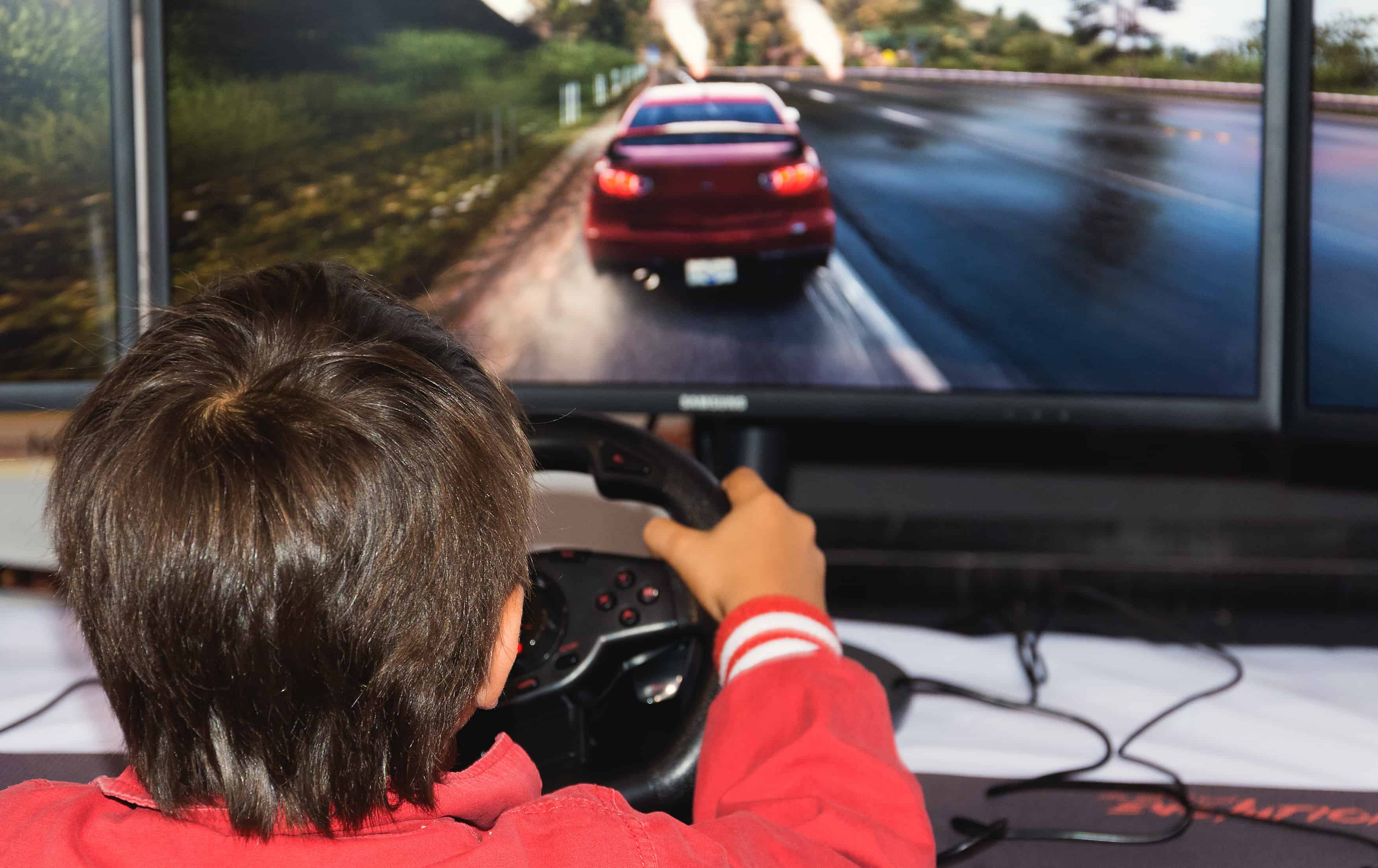
We long for answers about the effects of screens on kids, but these are elusive.
There are legitimate reasons to be concerned about the effects of screens on kids (and the rest of us). Given how popular smartphones, gaming, streaming media, and social media are, these technologies are certainly worthy of researchers’ attention.
We want answers, right? How much is screen time is too much for our kids? At what age should you get your child a smartphone? More broadly, are screens good or bad for kids? A better question is: When are they beneficial and when can they be harmful? On a related note, how harmful…or beneficial…are screens?
Some Downsides To Screen Use
Practically every parent struggles with their kids over screen-related issues. Let’s only consider “typical” screen use here. We are not talking about more extreme cases (e.g., a 10-year-old boy viewing porn for 3 hours a day or texting while driving).
Do any of the following scenarios sound familiar?
- Josh (14) spends all of his free time playing Fortnite and is probably clocking in close to 20/hours per week during the school year. He even sneaks in extra gaming time on school nights, often leaving him sleepdeprived. His grades have dropped from mostly As to Bs and Cs. Josh used to have a number of hobbies and would hang out with his friends in the neighborhood. Now, nearly all of his interactions with friends are online via Fortnite. His parents’ attempts to limit his game time result in arguments and ill-feelings. Their relationship has deteriorated.
- Jeremy (4) has tantrums every time his allotted “screen time” is over. Sometimes he’s literally in a tug-of-war with his parents over the iPad.
- Travis (8) complains almost constantly of being bored and says “there’s nothing to do” unless he’s on a screen. He shuns going outdoors to play with neighborhood friends.
- Brittany (16) is always on her phone checking social media. The phone is always in her hand and she can barely go a minute without checking it, taking a selfie, or posting on social media. She is obsessed with getting “likes” on her Instagram posts, and gets upset when she doesn’t get “enough”. Any satisfaction she gains from popular posts is fleeting. She has trouble getting her homework done efficiently because she is Snapchatting with her friends all the while.
Are Screens To Blame
While some alarmists claim screens are destroying a generation, thankfully, research does not support that. There is evidence that rates of anxiety, depression, and suicide are increasing among teens and young adults. However, we can’t just point our fingers at screens as the cause. Life is more complicated than that. For instance, although suicide rates are increasing among young people, they are increasing for pretty much every other age demographic as well. Also, when we look at suicide rates over time, you might notice that suicide rates were higher for most age groups before smartphones hit the scene (2007).
Some Upsides of Screen Time
We all, of course, experience the many benefits of screen use. From my practice I can see that when kids use screens healthily, they can strengthen friendships and spark a drive to learn. Consider these common scenarios:
- Friends Kevin (10) and Jacob (10) get exercise and have great fun roaming the neighborhood together catching Pokemon in Pokemon Go. Their friendship is strengthened by this shared experience.
- Sophia (15) is passionate about environmental causes. She uses the Internet to learn more about protecting the environment and uses social media to get her community around the cause.
- Finn (9) loves Roblox. He’s learned to create his own games and upload them online, so others can play. These experiences have ignited his passion to learn programming.
- Claire (6) is uses an app on her iPad to practice her writing skills. Since the app gamifies writing, she enjoys the practice — and her writing skills are improving.
Kids likely experience many of the pros and cons of screen use. Just highlighting the negatives doesn’t give the complete picture. Just as highlighting the positives doesn’t give the complete picture. It’s impossible to experience the benefits of screens without experiencing the downsides of screens and this still applies to the scenarios listed above.
The Immediate Effects vs. Overall Impact
I recently had an epiphany after watching Nobel prize winning behavioral economist Daniel Kahneman’s TED talk, which I covered in my last blog. I realized that when we talk about the effects of screens, we often don’t consider our two “selves”.
Kahneman describes how the happiness (or unhappiness) of the “experiencing” self (i.e., in the moment, short-term) is not highly related to the overall life satisfaction (or dissatisfaction) of the “remembering” self (e.g., big-picture, long-term). As parents, we see some of the short-term effects of screens, including your child not spending much time outdoors, and his or her mood or behavioral changes, but it’s hard to assess the overall impact of screen use on life satisfaction. It’s entirely possible for screens to affect mood and behavior in the short-term without affecting overall life satisfaction much, if at all, for most people in the long-term.
This idea doesn’t just apply to screens. Think of the many books and restaurants that you’ve enjoyed over the years. Alternatively, think of some of the disappointments you’ve had over the years — a lost job, a flat tire, a trip to the beach in which it rained the whole time. While such experiences might contribute to temporary pleasure or displeasure, they don’t really affect our overall life satisfaction.
The Parallels With Advertising
Advertising works very well. Media advertising in the U.S. is projected to hit $240 billion in 2019. Google and Facebook make their billions largely on advertisements. Even those costly Super Bowl ads pay off for companies. Thus, our consumer behavior is affected by advertisements, endorsements, and branding. They get us to buy more stuff. Interestingly, ads that get us to buy more stuff sell us on the promise that “if you buy __, you’ll be happier.” But, in line with Kahneman’s discourse on happiness, the momentary pleasures we gain from buying stuff don’t translate into increases in life satisfaction. In fact, if buying stuff really led to increased life satisfaction we wouldn’t need to keep buying so much stuff! However, we keep falling for this delusion.
While advertisements for Coke and Pepsi might get us to buy more of their sugary drinks and lead to temporary pleasure, drinking soda isn’t going to improve our overall life satisfaction. As our teeth rot and metabolisms change, an argument could be made that buying unhealthy food and beverages increases short-term, “experiencing self” happiness but results in lower overall life-satisfaction. Tooth decay, dental pain and bills, and health problems related to obesity can decrease life satisfaction. Over time, our experiencing self begins to suffer from the health consequences of our past experiencing self’s actions. To the extent that obesity shortens lives, we can say that overall life satisfaction suffers too because, well, our lives are shortened.
The Bigger Picture
To be clear, I’m not saying screen use decreases life satisfaction by shortening our lives. Well, with distracted driving and phone use, it might just do that in a direct fashion. However, I do think we have to be mindful that our screen use doesn’t affect our life satisfaction in more subtle, insidious ways. This could include being too sedentary and having chronic sleep loss (e.g., staying up late on social media or binge watching Netflix). It is extremely difficult to capture such effects in research. Thus, my default advice is to strive for life balance. This means we ensure that we are effectively meeting our physiological and psychological needs and that we don’t let screen use get in the way of meeting those needs. Rather, if we use them mindfully, we can potentially use screens to meet these needs more effectively.
The whole controversy regarding how we are being affected by our screens speaks to a much bigger and broader issue: How should we live to have a fulfilling life? How do we reduce our suffering and improve our life satisfaction? I look forward to tackling these broader questions in future posts, as I’m writing my next book on this topic.

